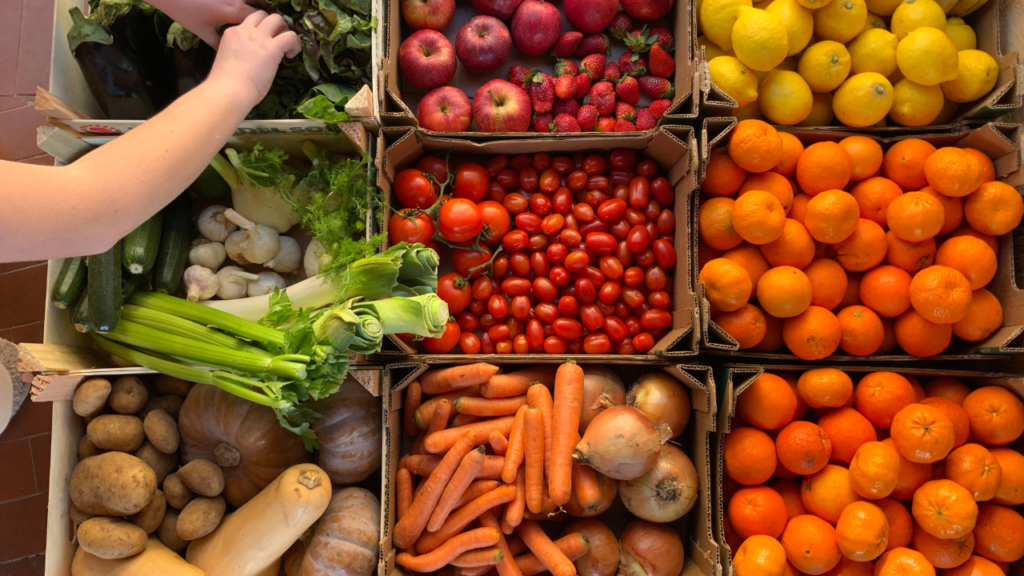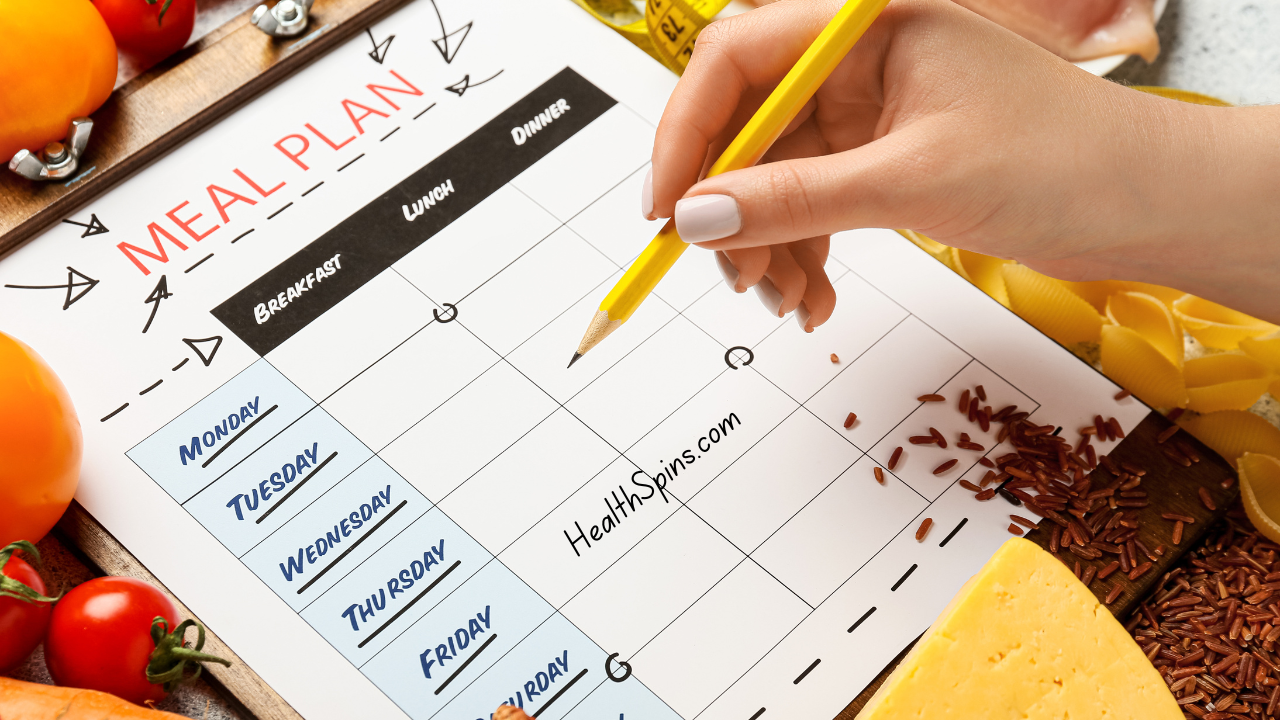What we eat plays an important role in our fight to prevent cancer. Food fuels our bodies, and as it nourishes, it also protects us against illnesses, including cancer. However, it doesn’t just happen. You have to be mindful and plan your meals.
The first step in learning how to create a cancer fighting meal plan is to be aware of which foods to include and what to cut out of your diet.
Keep reading as we show you the foods to include and what to scratch out of your cancer fighting meal plan. Whether you’re looking to add more fruits and vegetables to your diet or curious about the best sources of lean protein, you’ll find helpful tips here to get started on how to create a cancer-fighting meal plan.
How to Create a Cancer-Fighting Meal Plan
Here are some tips to help you create a cancer-fighting meal plan.
> Include Plenty of Colorful Fruits and Vegetables
Have you heard people say, eat the rainbow? If not, it means that you need to consume different colored fruits and vegetables. For a cancer fighting meal plan, your meals must include a variety of fruits and vegetables, and a plate certainly looks appetizing when it is filled with lots of colors!

Fruits and vegetables are a great source of nutrients and antioxidants that protect the cells from the damage caused by free radicals. They are also rich in fiber, which promotes healthy digestion and reduces inflammation in the body.
Health experts recommend at least two servings of fruits and two and a half cups of vegetables per day.
> Choose Lean Proteins
When you’re creating a meal plan for fighting cancer, you need lean proteins to build and maintain muscle mass while boosting the immune system. Some good sources of protein are fish and poultry, which are also low in saturated fats.
If you want to avoid animal products, the best plant-based alternatives include beans, lentils, and tofu. They’re high in fiber, vitamins, and minerals.
Make sure you don’t eat too much red meat or processed meats, which have been linked to an increased risk of cancer.
Processed meats are classified as a Group 1 carcinogen by the World Health Organization (WHO) because they’re known to cause colorectal cancer. So, if you want to eat meat, choose lean meats, not processed meats, and watch your portion sizes.
> Choose Whole Grains
Whole grains provide fiber, vitamins, and minerals that can help reduce inflammation in the body and consequently prevent cancer.
Some of the best examples to include in your meals are brown rice, quinoa, and whole-wheat breads.
Avoid refined grains like pasta and white bread as they don’t have enough nutrients and fiber to nourish your body. Refined grains and anything made with white flour adds pounds and excess body fat which increases your cancer risk.
> Incorporate Healthy Fats
Your body needs fat for health! So eat foods with healthy fats like those found in nuts, seeds, avocado, and olive oil. Healthy fats, like omega-3 fatty acids, can help reduce inflammation in the body.
Nuts and seeds are good sources of protein and fiber. Avocado is high in heart-healthy monounsaturated fats, and olive oil is a good source of polyunsaturated fats.
The healthy amount of fats you can eat a day depends on your calorie requirements and goals.
> Choose Organic or Locally Grown Produce
Harmful chemicals used in food production can also cause cancer. So, if you can and whenever you can, choose organic or locally grown produce, which are often grown without pesticides and harmful chemicals.
This can reduce your exposure to toxins and lower your risk of cancer.
You must also avoid processed and packaged foods, which can be high in sodium, preservatives, and other unhealthy additives. These can contribute to inflammation in the body and increase your risk of cancer.
> Skip Sugar for Preventing Cancer
Sugar is not a carcinogenic (cancer-causing) substance. However, over-consumption of sugar, particularly added sugars in processed beverages and foods, can contribute to obesity which is an important risk factor for cancer. There is no evidence that consuming sugar makes cancer cells grow faster or cause cancer.
Cancer.org
So, even though refined sugar doesn’t have a direct link to cancer it really has no place in a cancer fighting meal plan. It can defintely cause weight problems. And obesity is a high risk factor for many types of cancer.
Eating sugar also causes blood sugar levels to spike, which causes more insulin release in yoru body. There are studies that indicated that high insulin levels can promote the growth of cancer cells.
Another problem with sugar is that causes stress and anxiety. Stress and cancer prevention definitely do not go together. The best thing you can do is to concentrate on eating real foods.
When you’re eating a lot of refined sugars, you’re likely short on the nutrients that help protect against cancer. So, do not replace foods that have the needed vitamins, minerals, and fiber with sugary foods if you aim to lower your cancer risk.
> Drink Plenty of Water To Stay Hydrated
This isn’t really part of a meal plan, but it’s too important to leave out. Water is the liquid of life! Without it, we can’t survive. It helps to flush out toxins from the body and keeps it running optimally.
So keeping the body hydrated is the key to life. That’s why it is recommended we all drink our 8 glasses of water per day.
Choose water , not sugary drinks.
They’re high in added sugars, which can contribute to inflammation and increase your risk of cancer. If you’re craving something sweet and refreshing, you can eat a colorful, fresh piece of fruit.
If You Need Help
Everybody’s dietary needs are different. If you are not sure what your body needs, you can work with a registered dietitian or other healthcare professional for a personalized cancer-fighting meal plan.
They can also help you to make healthy lifestyle choices too. If you have a history of cancer or are undergoing cancer treatment, it’s especially important to work with a healthcare professional to ensure that your meal plan supports your health.
In Summary
Creating a cancer-fighting meal plan involves making healthy choices and incorporating various nutrient-dense foods. Your meals must include plenty of colorful fruits and vegetables, lean proteins, whole grains, and healthy fats.
It’s also super important to stay hydrated by drinking plenty of water.
A cancer fighting meal plan is about food choices that support your body’s natural defenses against cancer. So make sure you do what you have to do because making small changes to your diet can greatly impact your efforts to prevent cancer.
